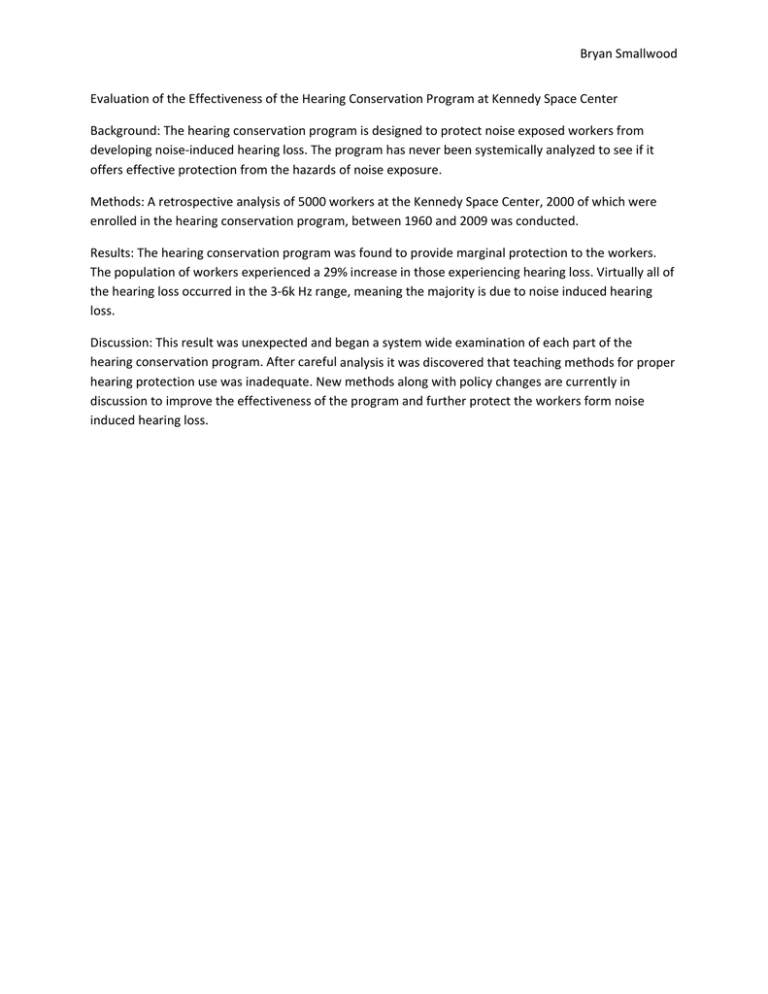Bryan Smallwood Evaluation of the Effectiveness of the Hearing Conservation Program at Kennedy Space Center
advertisement

Bryan Smallwood Evaluation of the Effectiveness of the Hearing Conservation Program at Kennedy Space Center Background: The hearing conservation program is designed to protect noise exposed workers from developing noise‐induced hearing loss. The program has never been systemically analyzed to see if it offers effective protection from the hazards of noise exposure. Methods: A retrospective analysis of 5000 workers at the Kennedy Space Center, 2000 of which were enrolled in the hearing conservation program, between 1960 and 2009 was conducted. Results: The hearing conservation program was found to provide marginal protection to the workers. The population of workers experienced a 29% increase in those experiencing hearing loss. Virtually all of the hearing loss occurred in the 3‐6k Hz range, meaning the majority is due to noise induced hearing loss. Discussion: This result was unexpected and began a system wide examination of each part of the hearing conservation program. After careful analysis it was discovered that teaching methods for proper hearing protection use was inadequate. New methods along with policy changes are currently in discussion to improve the effectiveness of the program and further protect the workers form noise induced hearing loss.

